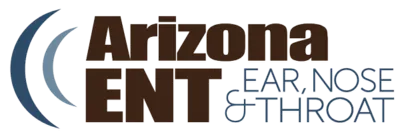Five Most Common Nasal Issues
updated: Apr. 01, 2020
Congestion and other nasal issues can make you feel miserable and affect your ability to breathe easily. Here are five common nasal problems and discusses treatment options.
Allergic rhinitis
Your nose is particularly sensitive to the effects of allergens in the air. Exposure to pollens, grass, weed, or mold can trigger uncomfortable symptoms, including:
-
Frequent sneezing
-
Congestion that makes breathing more difficult
-
Runny nose
-
Pain and pressure in your sinuses
-
Itchy nose, eyes, ears, and throat
-
Watery eyes
-
Scratchy throat
Allergy medications or shots, prescription nasal sprays, decongestants, and antihistamines can help prevent or reduce your symptoms.
Non-allergic rhinitis
Non-allergic rhinitis isn't caused by airborne allergens, even though the symptoms are the same. Exposure to strong irritants, such as smoke, dust, pollution, and strong odors can cause the problem. Saline nasal spray can help wash away irritants, reducing your symptoms. Decongestants and prescription corticosteroid or antihistamine nasal sprays may also be helpful.
Nosebleeds
Nosebleeds happen to nearly everyone occasionally and are usually caused by dry nasal passages or a blow to the nose. Saline nasals sprays and water-based nasal gels help moisten your nasal passages. If your nosebleed is severe, it may be necessary to cauterize the blood vessel to stop the bleeding.
Deviated septum
Your septum is a layer of bone and cartilage that separates your nostrils. Very few people have perfectly proportional septums. Although many of us have deviated septums, in most cases the deviation is minor and doesn't affect breathing. If the deviation is severe, you may experience:
-
Congestion
-
Difficulty breathing
-
Frequent sinus infections
-
Nosebleeds
-
Headaches
-
Postnasal drip
-
Snoring and sleep apnea
Nasal polyps
Nasal polyps are small growths that occur on the lining of your nose. Although they're usually benign, they can make it more difficult to breathe, cause runny noses and sinus pain, and increase your risk of sinus infections. Nasal corticosteroid strays can help shrink polyps, and antihistamines may be useful in reducing chronic nasal inflammation. If your polyps are large and other treatments haven't been unsuccessful, your ENT may recommend surgery.
Not sure what's causing your nasal issues? An ear, nose and throat doctor can diagnose the problem and offer treatments that will help you breathe easier. Call your ENT to schedule your appointment.
Our Locations:
14510 W. Shumway Dr. , Ste 101, Sun City West, AZ 85375
10503 W. Thunderbird Blvd., Ste 104, Sun City, AZ 85351
